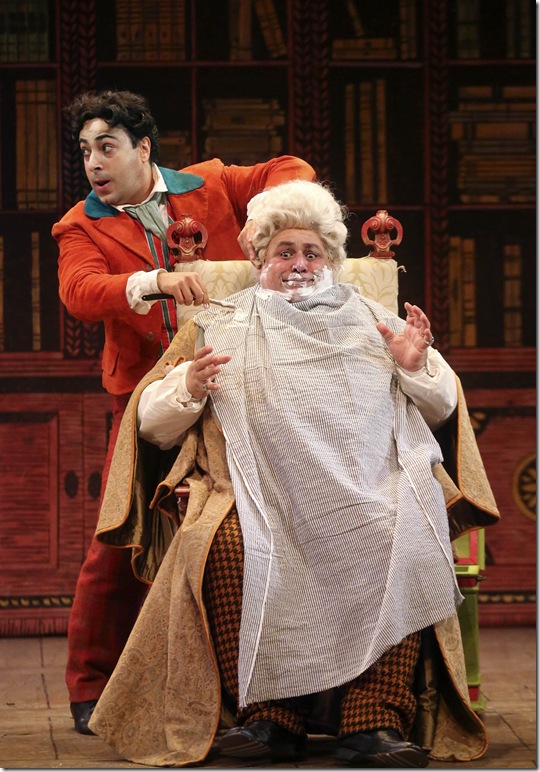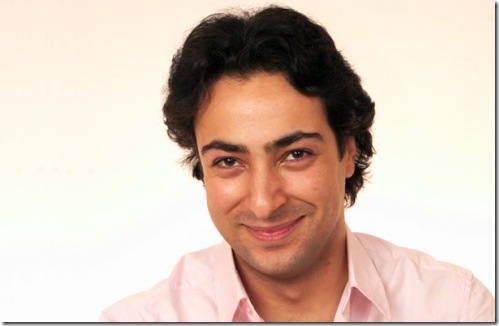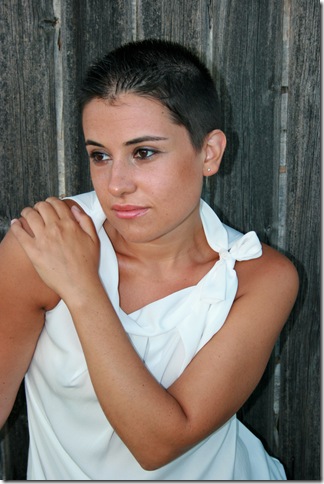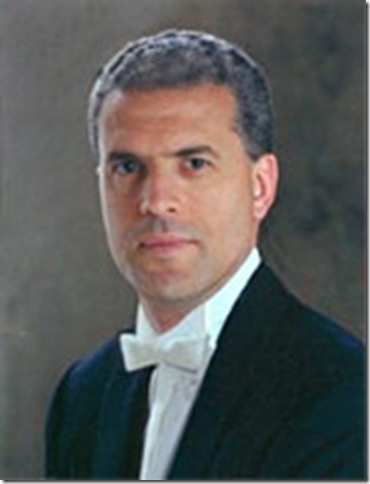Scratch the surface of a typical Rossini scholar you happen to meet and he or she will tell you that the Italian composer’s greatest contribution to the art of opera was in his serious works.
It was there, the scholar will say, in works such as Elisabetta, Semiramide, Tancredi, Otello and Guillaume Tell, that Gioachino Rossini blazed a path that would be followed to great profit by later composers such as Giuseppe Verdi, still in his teens when then older composer retired from the stage.
And that’s true. But for the majority of operagoers, it scarcely matters.
Their affections are given over to Rossini’s comedies — La Cenerentola and L’Italiana in Algeri, just to name two, and Il Barbiere di Siviglia (The Barber of Seville) above all. Tonight, the Palm Beach Opera opens the first of three mainstage performances and a family matinee of the Barber, a bubbly buffa that at almost 200 years old (it premiered in Rome in 1816) has lost none of its capacity to delight, amuse and drill 19th-century melodic earworms into the heads of its auditors.
It is a riotously funny piece, based on the same French sources that Mozart and Lorenzo da Ponte drew on 20 years earlier for their great collaboration, Le Nozze di Figaro. In the Barber, a lecherous old man’s desire to marry his much younger, beautiful ward is thwarted by Figaro, the hair cutter and cut-up who always seems to have some sort of scheme going. He helps Rosina, the ward, be united with her true love, Count Almaviva, leaving Dr. Bartolo in the matrimonial lurch, and sadder but wiser.
Figaro is the engine of the plot, and it’s small wonder that it is a favorite of baritones everywhere.
“He is such a great character. And as I sing Figaro, and I try to do this with every character I sing, is to find out who this person is: How does he live, what does he like to wear, how would he sleep? And I’m always trying to find some of Figaro in me,” said Rodion Pogossov, 35, a Russian lyric baritone who has sung the role at New York’s Metropolitan Opera and will sing it for Palm Beach Opera this weekend.
“He is the master, he’s always enjoying life. It’s always sunshine for him,” said Pogossov, a Muscovite who was studying to be an actor before the quality of his singing voice led him on a career detour to the Gnessin School of Music and the Lindemann Young Artist Development Program at the Met.
Figaro’s Act I calling card is his aria Largo al factotum, which is one of the best-known of all operatic songs, not least for the way it has been parodied in popular culture for decades, as iconic as the opening four notes of Beethoven’s Fifth Symphony. For countless listeners, the very name “Figaro” can only be properly expressed as the last three notes of a descending major scale, followed by faster and faster repetitions.
But there’s so much more going on than that. In the opera, we hear all the things that make Rossini the great master that he is, from tuneful abundance to brilliant orchestration, from cannily conceived ensembles to a wonderful sense of comic pacing that keeps the audience member interested, diverted and never bored.
For this production, the Italian mezzo Gaia Petrone is singing the role of Rosina for the first time in the U.S. Her love interest, Count Almaviva, is sung by the American tenor David Portillo, and the unlucky Dr. Bartolo is portrayed by the Italian bass-baritone and comedy specialist Bruno Praticò, who was La Cenerentola last season. Rounding out the cast are Wayne Tigges as Don Basilio and Rachel Arky, a company Young Artist, as Berta.
The music is directed by the veteran French conductor Patrick Fournillier, also making his company debut, while Fenlon Lamb, director of opera at Maine’s Bar Harbor Music Festival, handles the stage direction.
Petrone has specialized in earlier music in her young career, having studied it at the Royal Conservatory in the Hague, Netherlands. She has sung Renaissance and Baroque masters such as Monteverdi, Schütz, Cavalli and Handel, and appeared in much-admired productions of operas by Haydn, including Il Mondo Della Luna. In April, she’ll appear in the trouser role of Sesto in Mozart’s last opera seria, La Clemenza di Tito, at Vienna’s Kammeroper, where she first sang Rosina.
A native of Recanati, on Italy’s northeast coast, which is also the hometown of the legendary tenor Beniamino Gigli, Petrone says she feels a cultural kinship with Rossini, who came from the same part of Italy; specifically, Pesaro, about 50 miles north.
Petrone also sees more to the character of Rosina than just a young woman thrilled to be in love for the first time.
“I think that she’s a little bit more than this,” said Petrone, 29, who also studied at Rome’s Santa Cecilia Conservatory and also sings with her own jazz quartet. “She has really clear ideas, and she really knows herself. And she uses a different part of herself with the Conte, with Figaro, with Bartolo, with Basilio, so she can manipulate the situation and her relationships with these characters.”
Petrone has gone back to the original Beaumarchais plays to get more information about the character, and says that there is something of the Barber’s Rosina in Mozart’s Le Nozze di Figaro, and something of the grown-up Rosina — Countess Almaviva in Mozart — in the Barber. It’s important to keep looking for dimensions to this role, she said.
“The risk, when you sing this really famous opera, is to have a sort of crystallized idea about the character,” she said. “In this way, you can kill the opera; you can do the opera like a museum. And it doesn’t make sense, because you have to continue to explore, to get deep inside, and try to communicate with the audience, which changes every time.”
Pogossov has sung Figaro numerous times, and will do so again in Germany this year, and at Los Angeles Opera early in 2015. This April, he returns to the Met for a run of Mozart’s Cosi fan Tutte as Gugliemo, with James Levine directing a cast that includes Danielle de Niese, Susanna Phillips, Isabel Leonard and Matthew Polenzani. One of the more memorable productions, he said, was one in Detroit, which was set in the U.S. in the Jazz Age of the 1920s, and in which he had to sing while walking on his hands.
It’s a role that requires a lot of stamina, he said.
“First of all, he’s young, and he has to be on time everywhere in order to do all this stuff,” Pogossov said. “He says, ‘I’m a veterinarian, I’m a barber’ — he’s everything. So all day long he’s running around the city … And you have to make the audience understand that he’s everywhere. He fixes every problem. So that makes it tiring. But I’m just trying to relax.”
Fournillier, who is visiting Florida for the first time (“It’s fantastic”), is a native of the Parisian suburb of Neuilly-sur-Seine who studied at the Mozarteum in Salzburg and the Strasbourg Conservatoire. In 1990, he co-founded the Massenet Festival, a biennial exploration of the operas of Jules Massenet, whom Fournillier considers “an incredible composer.”
This May, he’ll be conducting the L.A. Opera production of Massenet’s Thaïs, with another Massenet enthusiast, Placido Domingo, in the role of Athanaël opposite the young Georgian soprano Nino Machaidze.
Fournillier, 59, points to several things that make Rossini special, including his willingness to play with standard aria structures and his remarkable affinity for orchestration.
“The orchestration of Rossini seems very simple, like Mozart: Two flutes, two oboes, two clarinets, two bassoons, two horns, two trumpets, and strings, plus a harpsichord for the recitatives,” Fournillier said. “That’s all. It’s very simple. But with this (small) orchestra, he’s able to create a lot of different sentiment and emotion.”
Rossini uses unusual orchestral techniques like ponticello strings and muted horns for specific, memorable effects, and he exploits the individual instruments, particularly the winds, in spotlight fashion, he said.
“We need really excellent musicians to play Rossini perfectly. It’s very virtuosic; the winds are like soloists, not so much like orchestral soloists, but soloists in concerti,” Fournillier said.
The conductor said he prefers fast, light tempi for Rossini, and considers that aspect of the composer’s art crucial. But all of that is in service to the comedy being sung and acted on stage, which he said, must also work with the music rather than against it.
“Opera is complete, it’s drama and music, but for me, it all comes from the music, because the composer was a theater man who knew exactly what he wanted,” he said. “’Barbiere’ is a funny story, it’s a love story, it’s a charming story … when the audience leaves, we want them to be happy, to be light, to be smiling.”
THE BARBER OF SEVILLE can be seen at 7:30 pm today and Saturday, and at 2 pm Sunday. Tickets range from $25-$135. There is a special 90-minute family performance of the opera at 1 pm Saturday starring members of the company’s Young Artists troupe; tickets range from $5-$26. Kravis Center, West Palm Beach. Call 561-832-7469 (Kravis), 561-833-7888 (PB Opera); visit www.kravis.org or pbopera.org.



